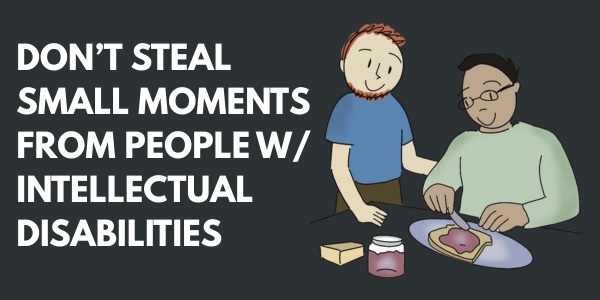He had an intellectual disability.
He also had constipation.
And constipation kills people with intellectual disabilities every single year.
Death by poop. It doesn’t get more undignified than that.
This wasn’t just about constipation. This was about power. About a man with an intellectual disability taking ownership of his own body. About finding a way to stay healthy without giving up his independence. A small chart. A small number. A big win.
Open Future Learning’s module The Fatal Five goes deeper into exactly this kind of issue. It provides essential, life-saving education for staff about the five health conditions, including constipation, that too often lead to preventable deaths.
Are you in charge of training at our organization? Want to see how Open Future Learning can work for your team? Schedule a Zoom demo of our site and then have 24 seats to our site for one month. No obligation. No contract of use. No cost. Link: https://www.openfuturelearning.org/index.cfm?fuseaction=login.RequestDemo
P.S. Open Future is now SCORM compliant. Use our courses on any Learning Management System (LMS)!


